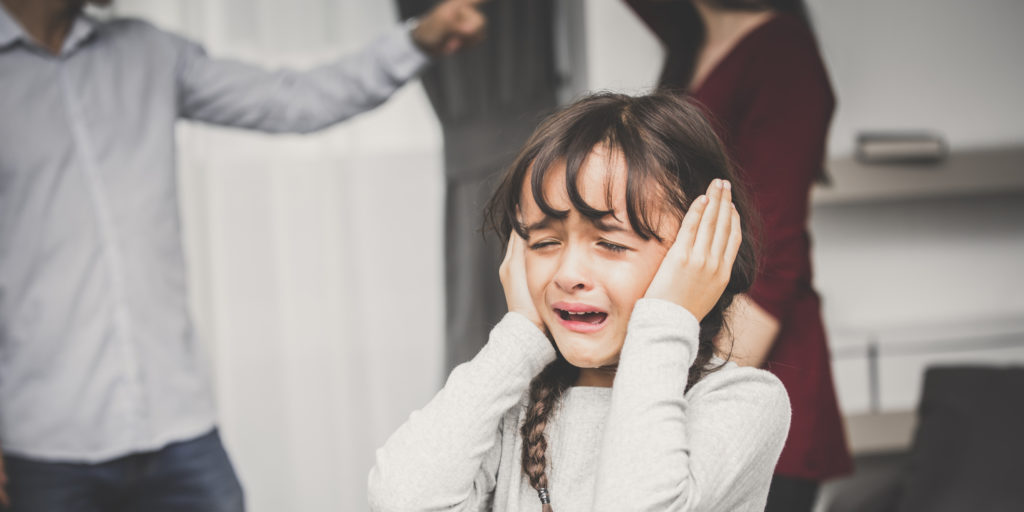This article was adapted from one that appears on the VeryWellFamily website. The full article offers more details and is well worth reading.
Studies show parents fighting affects children’s mental health in several ways. Physical altercations, insults, and tactics such as “the silent treatment,” are just a few of the toxic interactions that are likely to create some emotional damage to a child in the long run.
There’s research to suggest that a child as young as 6 months old can be negatively affected by harsh parental arguments. But it’s not just young kids who are affected by parents fighting – other studies show young adults, up to age 19, can be sensitive to conflicts in their parents’ marriage.
Researchers believe high-conflict marriages take a toll on a child’s mental health for several reasons:
- Kids are emotionally insecure. Fighting undermines kids’ sense of security about the stability of the family. Children exposed to a lot of fighting may worry about divorce or wonder when one parent’s silent treatment is going to end. It can make it difficult for them to have a sense of normalcy in the family since fights may be unpredictable.
- The parent-child relationship may be affected. High-conflict situations are stressful for parents too. And a stressed-out parent might not spend a lot of time with kids. In addition, the quality of the relationship may be affected as it may be difficult for parents to show warmth and affection when they’re angry and upset with the other parent.
- Fighting creates a stressful environment. Overhearing frequent or intense fighting is stressful for kids. Stress can take a toll on their physical and psychological well-being and interfere with normal, healthy development.
Additional research has shown that parental fighting can also cause long-term mental health effects on their children, including:
- Increased relationship problems
- Decreased cognitive performance
- Higher rates of behavior problems
- Increased risk of eating disorders
- Higher rates of adolescent substance abuse
- Higher risk of academic problems
A spat or two doesn’t mean you’ve irreparably harmed your child. However, you might want to take a few steps to lessen the effects of what they saw and heard. If your disagreement grows disrespectful, you might take these steps to address the situation with your kids:
- Discuss the fight.
- Reassure the children that it was just an argument and not indicative of bigger problems.
- Finish it up by making sure the children understand that you’re still a strong family.


